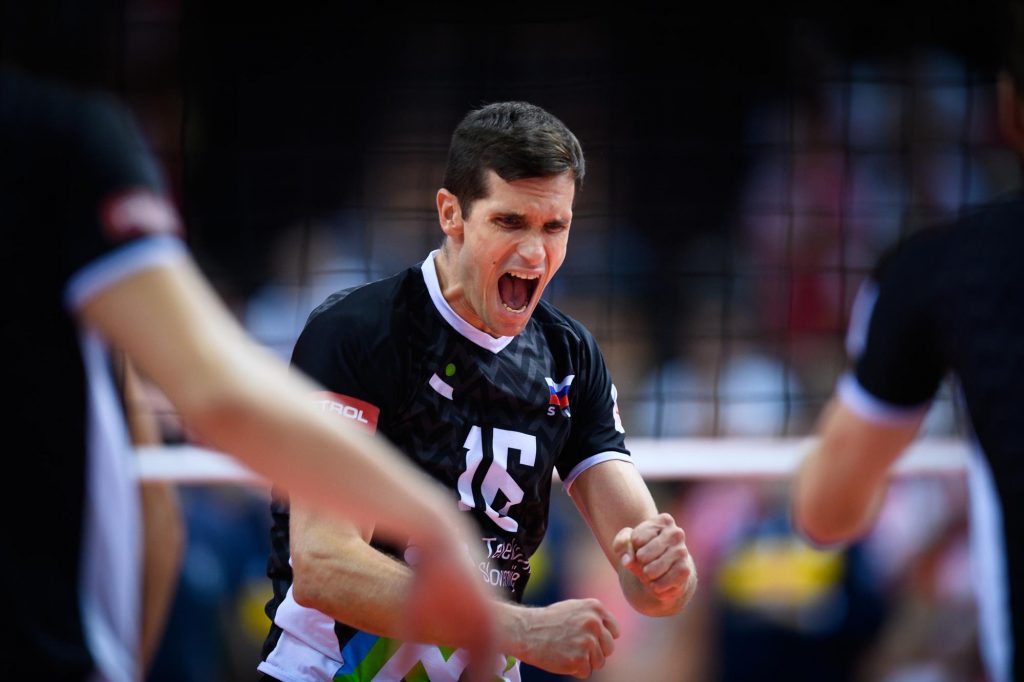Is Gregor Ropret Really to Blame? Unpacking Asseco Resovia’s Early Struggles

The Polish volleyball community is abuzz with debate, amplified by discussions published on Polsatport and discussed on the Polsat SiatCast podcast. At the heart of the conversation is Asseco Resovia’s underwhelming start in this year’s PlusLiga and the scrutiny of their new setter, Slovenian international Gregor Ropret.
A Team Poised for Greatness
Coming into the season, Asseco Resovia appeared formidable on paper. The arrival of Finnish coaching maestro Tuomas Sammelvuo signaled a new era. The team was further bolstered with the signing of star player Bartosz Bednorz from ZAKSA, along with the addition of Ropret, and middle blocker Cezary Sapiński. Alongside players from last season, including libero Paweł Zatorski, French opposite Stephen Boyer, middle blocker Karol Kłos, and Slovenian standout outside hitter Klemen Čebulj, the squad appears poised to achieve the highest goals.
With such a lineup, expectations were sky-high. Fans and analysts alike anticipated a dominant performance, possibly even a championship run. However, the reality has been sobering: just one win and two losses in their opening three matches.
Pointing Fingers at the Newcomer
Amid the disappointment, much of the criticism has landed squarely on Gregor Ropret. Detractors argue that his performance as setter has been subpar, suggesting that any previous shortcomings were masked by the longstanding chemistry of the Slovenian national team.
But is it fair—or even accurate—to place the blame solely on Ropret?
A Deeper Look at Team Dynamics
Examining the losses, it’s evident that issues run deeper than a single player’s performance. In the matches where Resovia faltered, Klemen Čebulj, Ropret’s compatriot and fellow national team member, struggled significantly and was substituted during games. If the theory of national team synergy masking individual weaknesses held true, Čebulj should have excelled alongside Ropret, mirroring their international success. This wasn’t the case.
Moreover, volleyball is inherently a team sport that thrives on collective effort and chemistry. The star-studded roster hasn’t gelled as expected, raising questions about team dynamics.
The Adaptation Factor
Transitioning to a new team and league is no small feat, even for seasoned professionals. Gregor Ropret is far from an inexperienced player. His tenure includes stints with Slovenia’s ACH Volley, France’s Cambrai Volley, and most recently, Sir Safety Perugia, where he served as a backup to the renowned Simone Giannelli. Limited playing time in Italy meant that Ropret relied heavily on national team competitions to maintain his form.
Expecting immediate perfection without considering the adaptation period is unrealistic. The onus shouldn’t solely be on Ropret to elevate the team’s performance instantly.
Reflecting on Recruitment Choices
Resovia’s management invested in Ropret knowing his background. They didn’t recruit a novice but a seasoned athlete with a proven track record of professionalism and dedication. If there’s a disconnect between expectations and reality, perhaps the recruitment strategy warrants scrutiny. Team management was undoubtedly aware of Ropret’s career trajectory when they signed him. If there were concerns about his ability to lead at this level, those should have been addressed during recruitment.
Was Ropret envisioned as a cornerstone of the team’s tactical approach, or was his signing more opportunistic? Understanding the intended role and integrating him effectively is crucial for both player and team success.
Conclusion
As the season unfolds, there’s ample time for Asseco Resovia to find their rhythm and fulfill their potential. Knee-jerk reactions and scapegoating won’t solve underlying problems. Instead, a measured approach that fosters unity and maximizes each player’s strengths may be the key to turning the tide.
After all, success in volleyball isn’t about individual brilliance alone—it’s about the harmony of the whole.